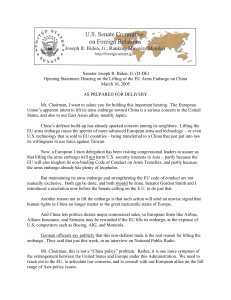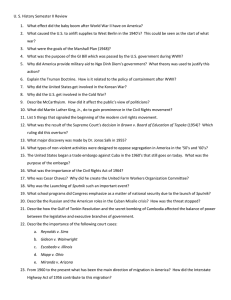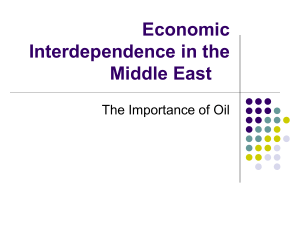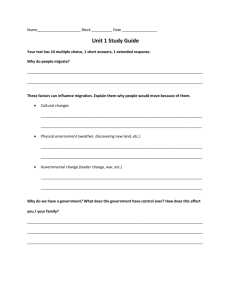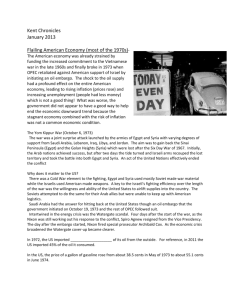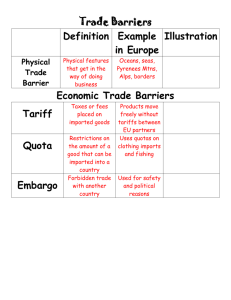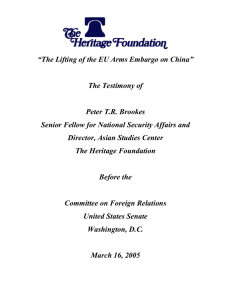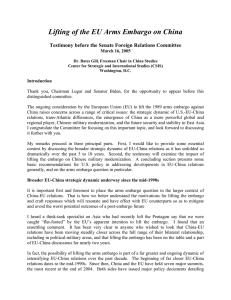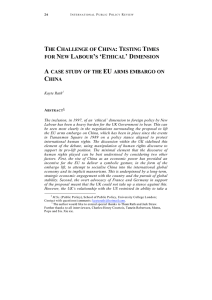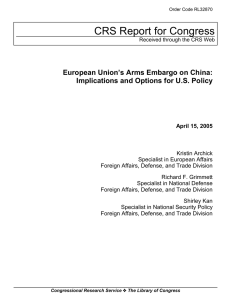Senate Committee on Foreign Relations Chairman Richard G. Lugar
advertisement
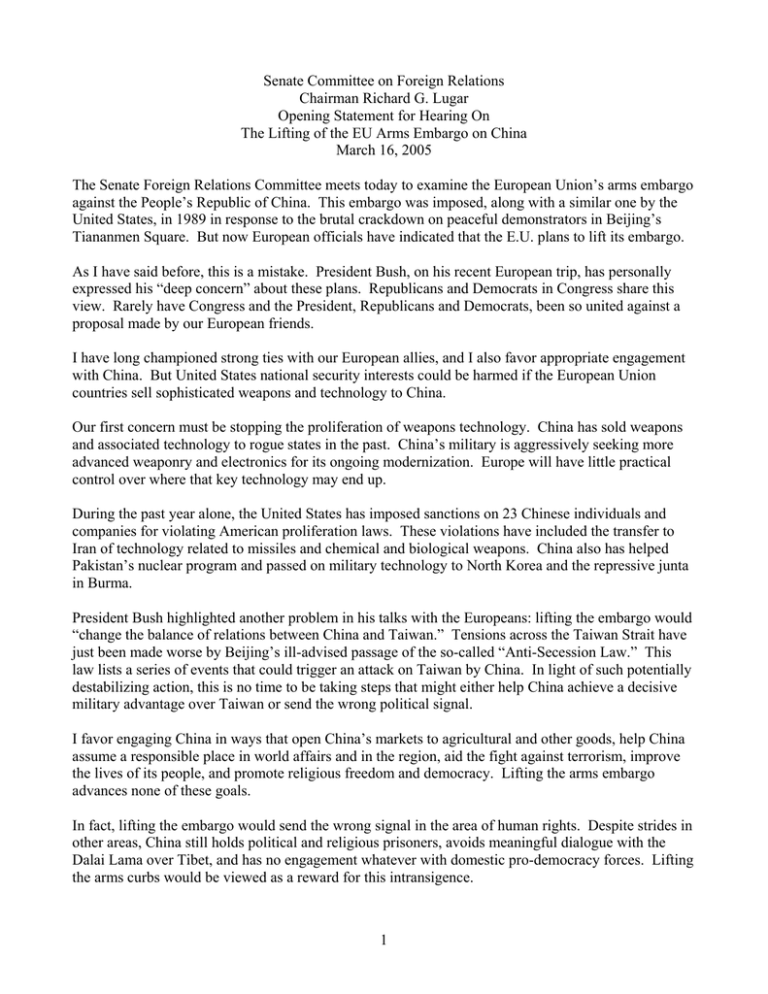
Senate Committee on Foreign Relations Chairman Richard G. Lugar Opening Statement for Hearing On The Lifting of the EU Arms Embargo on China March 16, 2005 The Senate Foreign Relations Committee meets today to examine the European Union’s arms embargo against the People’s Republic of China. This embargo was imposed, along with a similar one by the United States, in 1989 in response to the brutal crackdown on peaceful demonstrators in Beijing’s Tiananmen Square. But now European officials have indicated that the E.U. plans to lift its embargo. As I have said before, this is a mistake. President Bush, on his recent European trip, has personally expressed his “deep concern” about these plans. Republicans and Democrats in Congress share this view. Rarely have Congress and the President, Republicans and Democrats, been so united against a proposal made by our European friends. I have long championed strong ties with our European allies, and I also favor appropriate engagement with China. But United States national security interests could be harmed if the European Union countries sell sophisticated weapons and technology to China. Our first concern must be stopping the proliferation of weapons technology. China has sold weapons and associated technology to rogue states in the past. China’s military is aggressively seeking more advanced weaponry and electronics for its ongoing modernization. Europe will have little practical control over where that key technology may end up. During the past year alone, the United States has imposed sanctions on 23 Chinese individuals and companies for violating American proliferation laws. These violations have included the transfer to Iran of technology related to missiles and chemical and biological weapons. China also has helped Pakistan’s nuclear program and passed on military technology to North Korea and the repressive junta in Burma. President Bush highlighted another problem in his talks with the Europeans: lifting the embargo would “change the balance of relations between China and Taiwan.” Tensions across the Taiwan Strait have just been made worse by Beijing’s ill-advised passage of the so-called “Anti-Secession Law.” This law lists a series of events that could trigger an attack on Taiwan by China. In light of such potentially destabilizing action, this is no time to be taking steps that might either help China achieve a decisive military advantage over Taiwan or send the wrong political signal. I favor engaging China in ways that open China’s markets to agricultural and other goods, help China assume a responsible place in world affairs and in the region, aid the fight against terrorism, improve the lives of its people, and promote religious freedom and democracy. Lifting the arms embargo advances none of these goals. In fact, lifting the embargo would send the wrong signal in the area of human rights. Despite strides in other areas, China still holds political and religious prisoners, avoids meaningful dialogue with the Dalai Lama over Tibet, and has no engagement whatever with domestic pro-democracy forces. Lifting the arms curbs would be viewed as a reward for this intransigence. 1 Ending the arms ban would do little for improved E.U.-China ties, which have been developing despite the embargo. The main beneficiaries would be European defense companies. There are also reports that Europe expects to be rewarded for lifting the ban by getting more orders for Airbus airplanes. If so, the United States would be doubly harmed by losing sales of American-produced aircraft. The Europeans claim that lifting the embargo will not result in more or better weapons being sold to China. They say they have a Code of Conduct on Arms Exports that will limit the impact. However, the current embargo already has proven to be ineffective. In 2003, China got European export licenses for $550 million worth of military or sensitive dual-use goods. The Code of Conduct is only voluntary. The Europeans promised President Bush to strengthen the code to meet his concerns. The President is skeptical, and so am I. The Europeans’ decision is expected in June. I would urge the Administration to keep working to dissuade the Europeans from this course. In addition, we should make certain that Beijing can’t circumvent our arms embargo by buying American technology from Europe. The Administration should press for binding agreements with each E.U. member explicitly banning the retransfer to China of any U.S. technology or weapons that are on the U.S. munitions list. If the countries fail to agree, or if the quantity or quality of arms flowing to China from Europe rises markedly, we should reassess sales to Europe of our most critical military technology. To help us estimate the likelihood that the European Union will lift the embargo and to examine the implications if it does, we are joined by a panel of three distinguished experts. Mr. Peter Brookes is a senior fellow for national security affairs and director of the Asian Studies Center at the Heritage Foundation; Dr. Bates Gill is holder of the Freeman Chair in China studies at the Center for Strategic and International Studies; and Dr. Richard Grimmett, is a national defense specialist at the Congressional Research Service. We thank our witnesses for joining us and look forward to their insights. ### 2
